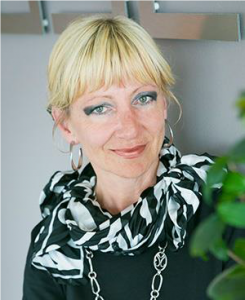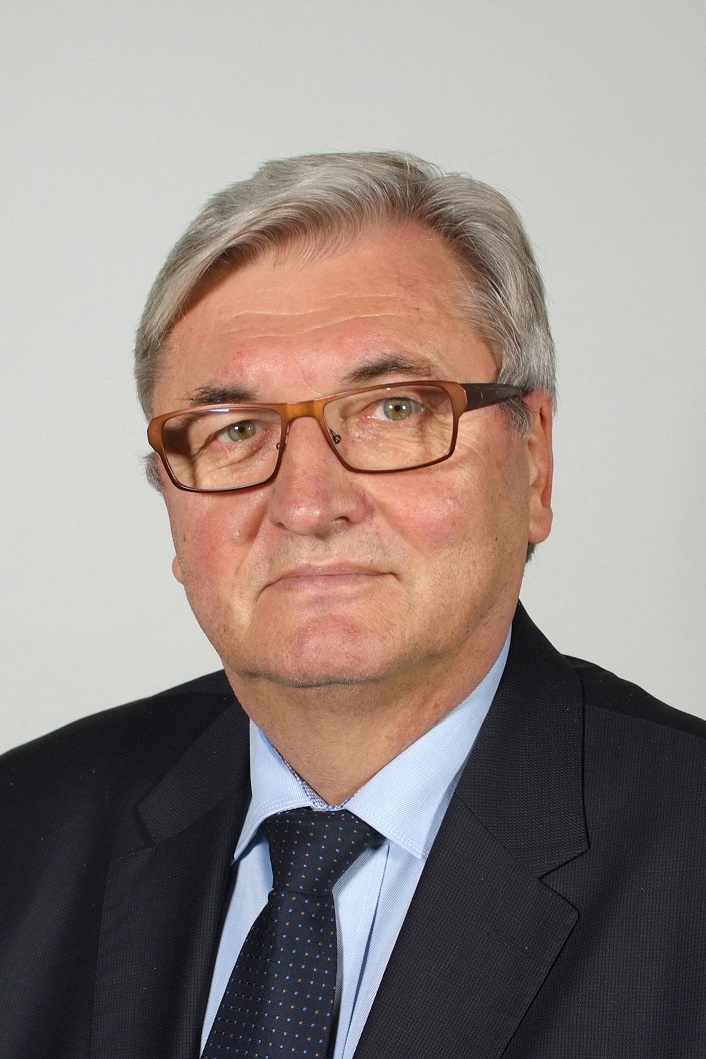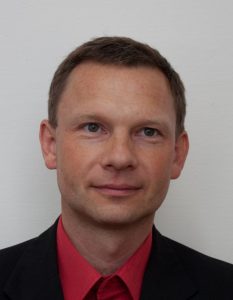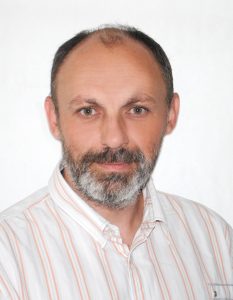
- This event has passed.
UNIZA Training School
September 18, 2018 - September 20, 2018

Maximise your chances of success in the Academic Career
Organised by the ERAdiate project at the University of Žilina, the Training School provided comprehensive information and advice on academic writing and communication, including how to write and present scientific papers, how to effectively communicate and maximise the impact of scientific results.
The event was open to the research community (Postdocs, PhD students and researchers). Young researchers in particular will benefit from attending the Training School to develop their competences and knowledge for producing and delivering high-quality scientific publications and presentations.
Day 1 – Tuesday 18 September (9am – 5.30pm)
- Role of soft skills in unlocking R&D potential in Central and Eastern Europe (CEE)
- Scientific publishing in Slovakia compared to international standards
- Academic publishing in transport science
- Peer review: meeting reviewer’s expectations
- Structuring an academic paper
- Reception at UNIZA
Day 2 – Wednesday 19 September (9am – 5.30pm)
- Publishing research outputs in attractive ways,
- Research impact and research ethics
- How to get words on paper: successful academic writing habits
- How to get published in high-impact journals
- Networking dinner
Day 3 – Thursday 20 September (9am – 4pm)
- Hands-on workshops to enhance writing and oral skills
- Panel discussion: enhancing the quality and impact of scientific publishing at UNIZA
Please note that the event was in English.
| Prof. Tatiana Kovacikova
Session:
|
Tatiana Kovacikova is ERA Chair Holder of the ERAdiate project on Intelligent Transport Systems (ITS) at the University of Zilina, Slovakia.
In 2016, she was nominated a National delegate for H2020 PC on Smart, Green and Integrated Transport. She has been active in standardisation for many years, currently she represents Slovakia in CEN TC 278 on ITS. From June 2013 till October 2015, she hold the position of the Head of Science Operations at the COST Association in Brussels. In 2013, she was appointed Full Professor in the Applied Informatics. From 2009 to 2013 she was the Head of the Department of InfoCom Networks at the University of Zilina, Slovakia. Her research interests include Information and Communication Technologies (ICT) and Intelligent Transport Systems (ITS), in particular network architectures, services and applications. She has been involved in a number national and international research projects including COPERNICUS, INCO-COPERNICUS, EURESCOM and EC FP projects. From 2002 to 2013, she was involved in the European Telecommunications Standards Institute (ETSI) as a leader or member of Specialist Task Forces for CLOUD, TISPAN (Telecommunications and Internet converged Services and Protocols for Advanced Networking) and ITS Technical Committees. In 2003, she got the SIEMENS AWARD for leading the research group in the field of IP telephony. In 1996, she received her PhD in telecommunication systems from the University of Transport and Telecommunications in Zilina, former Czechoslovakia. She received her diploma in telecommunication engineering from the same university. |
| Prof. Milan Dado
Session:
|
Milan Dado is Full Professor at the Faculty of Electrical Engineering (Department of Telecommunication and Multimedia). He is former dean of the Faculty of Electrical Engineering, former rector of the University of Zilina and former president of the Slovak rectors’ conference.
He had the opportunity to develop international activities in research and education abroad, e.g. at the York University Canada, Northern Telecom and Bell Canada in 1993, at the Royal Institute of Technology Stockholm in 1990 and at the Vienna University of Technology in 1981-1982. He has visited many other foreign institutions during the last 25 years. Prof. Dado has been actively involved in European research and education programmes (TEMPUS, COST, LEONARDO, Socrates, 5th, 6th and 7th Framework Programme, Horizon 2020, European University Association projects…) and has managed national projects related to information and communication technologies, intelligent transportation systems, regional innovation strategies and e-learning. He has been a member of several international committees and is currently COST programme national coordinator, member of COST Committee of Senior Officials as well as Executive Board member of COST. As project coordinator of ERAdiate, Prof. Dado is responsible for the project implementation as foreseen in the Grant Agreement with the European Commission (EC). He chairs project meetings and is responsible for progress and final reports to the EC. |
| Markus Dettenhofer, Ph.D.
Session:
|
Markus Dettenhofer, Ph.D. is the Executive Director of the Central European Institute of Technology (CEITEC). CEITEC is a scientific consortium of 6 universities and research institutes in Brno, Czech Republic, which has up to 550 scientists working in the fields of life sciences, advanced materials and technologies.
Prior to joining CEITEC, Dr. Dettenhofer was Project Leader in pre-clinical development for viral vaccine and antibody discovery at Crucell (Johnson & Johnson). His previous work at Harvard Medical School was in the field of genetics and developmental biology, including studies on genes which control bone development and memory function. He led a study analyzing the development of the biomedical economy in Panama. His most recent work is on governance practices in higher education institutions and their contribution to performance. Dr. Dettenhofer was a visiting scholar at the Institut de Biologie Molécularie et Cellularie in Strasbourg, France, and is frequently a Visiting Scientist with the Joint Research Centre of European Commission. He received his Ph.D. from Johns Hopkins University, and a B.S. from UC Berkeley. |
| Daniel Straka
Session:
|
Daniel Straka is Executive director of SOVVA since 2017 with more than 12 years of experiences in the area of creation and implementation of research and innovation policies at the national and European level. In years 2014 to 2017 he founded and led the Slovak Liaison Office for Research and Development in Brussels.
He also has experience with the preparation and implementation of international projects, organization of several international conferences in Slovakia and Belgium. Since 2011 till 2013 he worked as an analyst and executive director for the Slovak Organization for Research and Development Activities (SOVVA). He coordinated support of the FP7 in Slovakia and was a member of several programme committees and national contact point for SSH and Research infrastructures. He worked at the Ministry of Education of the Slovak Republic and at the Government Office of the Slovak Republic in the field of research, innovation and knowledge society. He has experience from working with EU affairs, R&D policy analyses and science communication. He is member of Horizon 2020 Strategic Configuration Program Committee. Daniel was also in charge of organizing Researcher´s Night in Slovakia in 2012 and 2013 and Kick-off Conference of Horizon 2020 in Slovakia. Daniel holds M.A. from the Comenius University in Bratislava, Slovakia. |
Prof. Elisabetta Cherchi Sessions: Sessions:
|
Elisabetta Cherchi is Professor of Transport at University of Newcastle. She has a broad international experience, having worked also at the Department of Transport of the Technical University of Denmark, for the Department of Transport of the Polytechnic University of Madrid and at the University of Cagliari, in Italy.
Her areas of expertise include: discrete choice analysis, decision making process, bounded rationality, user benefits, data collection (revealed and stated preference data, panel data, virtual reality experiments), mode choice, electric vehicles, autonomous vehicles. She is member of several transport research committees including Area Editor of Transportation (Springer) and member of the Editorial Board of Transportation Research Part B (Elsevier), Transport Policy (Elsevier) and Transportation Letter (Francis & Taylor). Elisabetta has an extensive experience as a leader of research projects and as a reviewer for international conferences and journals. From 2011 to 2015 she has held a course on “Publishing Research in Transportation Science” to PhD students of the Department of Transport a the Technical University of Denmark (DTU). |
| Dr. Giuseppe Lugano
Session:
|
Giuseppe Lugano joined the ERAdiate team in September 2016 as a Senior Researcher in Intelligent Transport Systems. He is leader of ERAdiate WP7 Dissemination and Project Manager of H2020 “Mobility and Time Value” (MoTiV) project (www.motivproject.eu). Previously, he worked from 2011 to 2016 as a Science Officer at COST (European Cooperation in Science and Technology) where he gained extensive experience in the management of trans-disciplinary Science and Technology networks across Europe.
As a researcher, Giuseppe contributed to the R&D activities of ICT multinationals such as TeliaSonera (2004-2008) and Nokia (2010). His scientific interests span a wide range of topics in conceptual and application-specific areas of social computing such as digital community design, mobile social networks, social robotics, educational technologies, green ICT and smart mobility solutions. Some of his publications received broad international attention: “Mobile social networking in theory and practice” is one of the reference publications in its area and the ~5.000 downloads of his PhD thesis on “Digital Community Design” make this dissertation one of the most popular ones from the series “Jyväskylä studies in computing”. In 2009 he received an Award nomination as best Early Stage Researcher in the COST Action 298 “Participation in Broadband Society”. Giuseppe holds a PhD in Cognitive Science from the University of Jyväskylä, in Finland, and a MSc in Computer Science from the University of Bologna, in Italy.
|
| Lenka Môcová
Session:
|
Lenka Môcová is a faculty member at the Institute of Lifelong Learning attached to the University of Žilina, formerly known as the Institute of Foreign Languages, the post that she has held since 2004. Lenka obtained her credentials as English teacher at the Catholic University in Ružomberok and in Passau University, Germany. She has more than twelve years of experience in technical translation, course design and teaching English for Specific Purposes. In 2008 she obtained a degree of Doctor of Pedagogy from the Catholic University in Ružomberok.
To support scientific development of PhD students at the University of Žilina, in 2015 Lenka began instruction of academic writing courses. She is an active member of the Technical Board of the Crisis Management Journal at the Faculty of Security Engineering. Currently, she is expanding her education by taking doctoral classes at the Department of Journalism, Catholic University in Ružomberok. Her interdisciplinary research explores the image of Slovakia in the British press. Her other professional fields of interest include Information Communication Technology support of academic writing and blogging as a tool for building relationships with students. |
MgA. Paulína Böhmerová
|
Paulína Böhmerová has been co-organiser and project lead for several initiates ranging in subject from international partnering, current societal challenges, to the arts. She served as a National Contact Point for Horizon 2020 and was also operating as the Slovak representative in Nanotechnologies, Advanced Materials, Biotechnology and Advanced Manufacturing and Processing with the Slovak Centre of Scientific and Technical Information (CVTI SR). She was charged with heading the Re-Industrialisation of the EU 2016 conference during the Slovak Presidency of the Council of the European Union. |
| Dr. Mario Malicki MD, PhD,
Session:
|
Mario Malicki MD, PhD, is a research fellow at the University of Split School of Medicine. He also holds an MA in Literature and Medicine, and is a member of Cochrane Croatia. He is currently involved in two projects related to themes that will be addressed in the UNIZA Training School:
1) COST Action PEERE, a European-wide scientific collaboration network which aims to assess and improve the current state of scientific peer review; 2) ProHealth , a project which aims to define and improve teaching of professionalism in biomedicine. His other interests include publication ethics, psychology of hope and medical education. |
Dr. Olena Hundarenko
|
Olena Hundarenko graduated from the Department of Foreign Languages, the Faculty of English and German of the Kirovohrad State Pedagogical University in Kirovohrad, Ukraine, 2001. In 2010, she defended her PhD paper in Public Speaking in Kherson State University, Ukraine.
She was awarded a Fulbright grant (2012-2013) to do her research in Academic Writing and Public speaking fields at Monterey Institute of International Studies, CA, USA. In 2013, she published a book on Academic writing for EFL learners. In 2014-2015, Dr Hundarenko was conducting a research on Positive Discourse Analysis: Language for Peace at Vienna University, Austria, as a part of OeAD scholarship. It was followed by the grant from Slovak Academic Information Agency (SAIA) to proceed with the project on Building European Scholarly Cooperation through Effective Writing Discourse (August 2015-July 2016). Since June 2017, Dr Hundarenko has been working as an assistant professor at the faculty of Humanities, at the University of Zilina, Slovakia. Dr. Hundarenko’s research areas include but not limited to the fields of English text and discourse analysis, stylistics and academic writing areas. She also offers courses of Russian for A1-C2 levels for both school and university teachers as well as general public. |
Assoc. Prof. Ľuboš Buzna
|
Ľuboš Buzna is Senior Researcher in the ERA Chair Team at the University Science Park of the University of Zilina and he is affiliate of the Faculty of Management Science and Informatics at the University of Zilina as Associate Professor of Applied Informatics.
He worked as researcher for several academic institutions: University of Barcelona (2014-2015) ETH Zurich (2007-2009) and TU Dresden (2005-2007), where he participated in FP6 project IRRIIS and FP7 project LASAGNE. He attained his PhD degree in 2003 from the University of Zilina in the doctoral study program “Transportation and Communication Technology”. His research is focused on the development of optimization algorithms and simulation models that are applicable in transportation networks, and more generally, in complex systems. He coauthored more than 40 publications, among them 15 in peer-reviewed international scientific journals. In 2013, he received award from Literarny fond for the response to his publications. |
Caroline Kyzek
|
Caroline Ann Kyzek is a lecturer at the Department of English Language and Literature, Faculty of Humanities at the University of Žilina. She received her Bachelor of Arts (B.A.) in English and History at Rutgers University, New Jersey, and her Master of Arts (M.A.) in English at Monclair State University, New Jersey, U.S.A. She is currently an external doctoral student at Pavol Jozef Šafarik University in Košice.
Her academic interests include academic writing, history, gothic literature and 19th century British and American literature. |
| Prof. Ing. Pavol Rafajdus, PhD.
Session:
|
Pavol Rafajus received the MSc. degree in electrical engineering and the PhD from University of Žilina, Slovakia, in 1995 and 2002, respectively. At present he is professor at the Faculty of Electrical Engineering, University of Žilina. His research is focused on the electrical machines, mainly switched reluctance motors and other electrical machine properties. He is devoted in the design of individual types of electrical machines, especially the type of reluctance, which was also the principal investigator of the several projects in this field. He is the author or coauthor of more than 150 scientific publications published in national or international conferences and symposia and national and international journals. A detailed list of all publications of the responsible person referred to in (http://www.kves.uniza.sk). He is the author of a scientific monograph: Switched reluctance motor, which is also closely related to his professional topic. He is co-author of 4 university textbooks, dealing with issues of modern electrical machines, measurement and modeling of electrical machines and the theory and examples of electrical machines. He is a supervisor of undergraduate and Master’s theses, as well as PhD supervisor of two students who successfully completed their doctoral dissertation. He cooperates closely with businesses and companies in projects or through active consultation and training employees. He regularly visits several foreign European universities (including University of Helsinki in Finland, University of Catania and Roma La Sapienza in Italy, and TU Cluj in Romania). He regularly participates in the Erasmus+ project, lecturing at various European universities in the field of electrical machines. Her academic interests include academic writing, history, gothic literature and 19th century British and American literature.
|
| Prof. Ing. Ladislav Janoušek, PhD.
Session:
|
Ladislav Janoušek is a head of the Department of Electromagnetic and Biomedical Engineering at the Faculty of Electrical Engineering. He finished his master and PhD. degrees at the Faculty of Electrical Engineering, University of Žilina, in the field of Power Electrical Systems. His professional career started at the Electrotechnical Research and Projecting Company in Nová Dubnica, Slovakia. Later he took a chance to join a research company IIU Int. in Tokyo, Japan, where he worked as researcher in the field of non-destructive evaluation of materials for three years. After returning back to Slovakia in 2005 he joined the Faculty of Electrical Engineering. His current research and innovation activities focus on electromagnetic non-destructive evaluation of conductive materials and impact of electromagnetic filed on living organisms. He is author/co-author of three patents and more than 150 research articles published in scientific journals and conference proceedings. He has been principal investigator of seven research projects and actively contributed to implementation of another ten projects funded from national and international resources. He got several prestigious awards for his achievements and innovative solutions.
|
Registration is open here until 15 June 2018.
The UNIZA Training School will be held at the University of Žilina.
It will take place in the following meeting rooms:
DAY 1 (18/9) and DAY 2 (19/9): UNIZA Menza – Scientific Board Meeting room (Univerzitná 8215/1, 010 26 Žilina).
DAY 3 (20/9):
- Morning workshops took place in the Rectorate Building (meeting rooms AF104, AF106), Panel Discussion took place in AF104.
| Hotel Dubna Skala**** Hurbanova 8 010 01 Žilina |
The Hotel Dubna Skala, the only “boutique” hotel in the city, is situated right in the historic centre of Zilina. The hotel’s exclusive environment is characterized by its unique design, modern comfort and intimate atmosphere. | Rate: 95 EUR double room single use, per night, excluding breakfast 10 EUR |
| Palace Hotel Polom**** Hviezdoslava 22 010 01 Žilina |
The exclusive Palace Hotel Polom is the entrance gateway to the Žilina city centre. The stunning building situated at the beginning of the pedestrian zone draws attention not only with its appearance, but also with its history. Possibility of parking on the attended hotel´s car park. | Rate: 69 EUR single use, per night, breakfast included |
| Penzión Central Park*** Sad SNP 663 / 18 010 01 Žilina |
Penzión Central Park is a real oasis of peace and relaxation in the centre of Žilina. A welcome drink, breakfast buffet, entry to the wellness centre and parking on the guesthouse´s premises are extra bonuses for the guests. | Rate: 55 EUR single use, per night, breakfast excluded |
| Hotel Grand*** Marianske square Na priekope 29 010 01 Žilina |
Hotel Grand, dating from 1910, is situated in a car-free zone right in the historic centre of Zilina. It offers a modern spa area. | Rate: 44 EUR single use, per night, excluding breakfast 5 EUR |
| Econo Hotel*** V. Spanyola 43F 010 01 Žilina |
EconoHotel is located in a quiet part of Žilina next to the town’s parks. It is 10 minutes walk from the historical center and 15 minutes walk from the University. | Rate: 45 EUR single use, per night, including breakfast |
Markus Dettenhofer
Prof. Elisabetta Cherchi
Prof. Elisabetta Cherchi
Lenka Môcová
Daniel Straka
Ľuboš Buzna
Olena Hundarenko
Mario Malički
Olena Hundarenko
Olena Hundarenko
Caroline Kyzek
Training School Day 1
Role of soft skills in unlocking R&D potential in CEE by Markus Dettenhofer, Executive Director of CEITEC Brno, CZ
Scientific publishing in Slovakia compared to international standards by Daniel Straka, Executive Director of SOVVA, SK
Academic publishing in transport science by Elisabetta Cherchi, University of Newcastle, UK
Peer review process: meeting reviewers’ expectations by Elisabetta Cherchi, University of Newcastle, UK
Academic Paper Structure- How to write a quality abstract by Lenka Môcová, Institute of Lifelong Learning, University of Žilina, SK
Training School Day 2
Publishing research outputs in attractive ways: analysis, findings, outputs by Mario Malički, University of Split, HR
Research impact and Research Ethics: strategy, channels and key steps by Mario Malički, University of Split, HR
How to get words on paper by Olena Hundarenko, University of Žilina, SK
Publishing in high-impact journals by Ľuboš Buzna, ERAdiate / University of Žilina, SK













